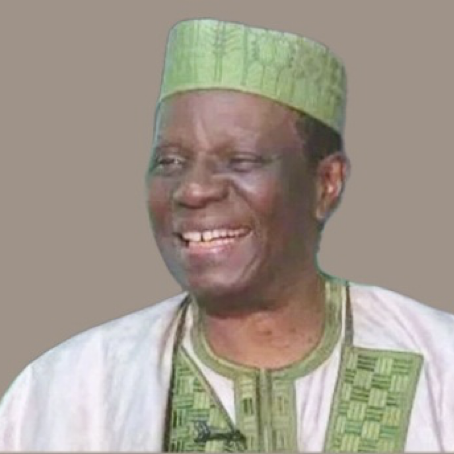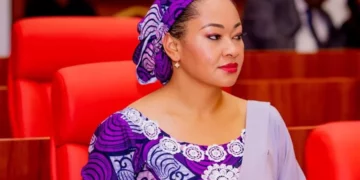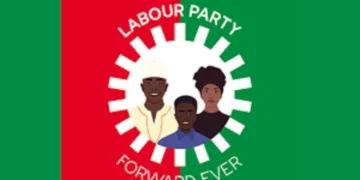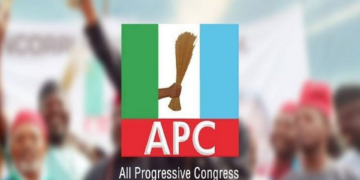A former director-general of the Nigerian Television Authority (NTA), Prof. Tonnie Iredia has described the June 12, 1993 annulled presidential election as a watershed and not only the best in the country’s electoral history.
According to the chancellor of the Tonnie Iredia, this was because all elections before it and after it had problems from 1959 to date.
Iredia, a former director of public affairs at the defunct National Electoral Commission (NEC) stated this while speaking at the Annual Lecture Series of the National Association of Political Correspondents (NAPOC 90’s) with the theme, “The Legacy of Option A-4 and June 12 election,” held in Abuja on Wednesday.
He called on the Independent National Electoral Commission (INEC) to be accountable, hence only credible election can bring good leaders, stressing that Nigeria needs strong institutions and not strong men.
“…Let’s proceed to what I would call the significance of June 12. I just have one simple significance, that June 12 was not only the best in the history of Nigeria. All elections before it had problems. All elections after it had problems.
“So it was a watershed. It’s very easy to know the difference. Before June 12, we had elections in 1959, 1964, 1979, 1983. All of them had problems. In 1959, political parties poured acid into the ballot boxes of the opponents.
“In societies where, especially, democracy is yet to be institutionalised, I believe that we all should be able to recognise the spirit behind the international consensus of commendation for Nigeria’s June 12, 1993, presidential election.
“What was special about June 12 was the calibre of the personnel of the electoral commission. There was unity of direction of late Prof Humphrey Nwosu. He told us that if elections are free and fair, we will all be given national honours by President Ibrahim Babangida.
“In our days, judiciary couldn’t stop elections, except where there is widespread irregularity. INEC itself should be accountable. Only credible elections can bring good leaders. Nigeria needs strong institutions, not strong men,” he said.
Iredia called for the adoption of Option A-4 in conducting party congresses and primaries and in places where elections have not been known to be credible.
“Option A-4 should be adopted in party congresses and in places where election have not been known to be credible. There are misconceptions about Option A-4. It’s not a system of voting, but an arrangement which made it possible for election results and winners to be known on the spot.
“We wait to announce declaration of results on the later. That’s why elections are rigged. Journalists should learn to report results of where it was collated.
“I have heard so many people talk about it that it was a system of voting, which is not correct.I think we all have to understand it. There were two systems of voting that we used in those days, open ballot and open secret.
“So Option A4 was not a voting system. It was an arrangement which made it possible for election results to be known on the spot at each stage, and which also made it possible for people to evolve from grassroots to the highest level,” he added.
Iredia also took a swipe at Governors of the Peoples Democratic Party (PDP) and other opposition politicians defecting to the ruling All Progressives Congress (APC) ahead of the 2027 elections, describing them as the same as herdsmen.
“I see those defecting Governors as same like herdsmen who move about destroying people’s crops and claim to have right of movement. Governors are free to move to wherever they want. But they must not move with the votes of the political parties.
“They should be stopped from moving because they are taking the votes of others. June 12 should remind us of true democracy. For me, if you want Nigeria to improve, we should have a system where President and Governors should neither be partisan nor serve as party leaders. You can only be partisan before you become president or governor. When you become President or governor you can no longer be partisan,” he added.
For his part, a lecturer in the department of political science, Nasarawa State University, Keffi, Prof. Jideofor Adibe argued that the option A4 could not be categorically described as the best method just as June 12 polls could be tagged the fairest.
“…Some of the supporters of option A4 or open ballot system have given reasons, they have said it enhances transparency, accountability, engagement, easier to verify, social pressure, and the rest, and of course critics worry about voter intimidation, coercion, and even outright harm on individuals who vote for certain candidates.
“Now, it is very common for us, and that’s why I’m going to disappoint so many people here, it’s very common to say that the June 12th election was the fairest and freest. So, given the clamour in some quarters for the open ballot system to be brought back, I think that’s been the clamour that you had the freest and fairest election under option A4 or open ballot system, and as Professor Iredia was recounting, he recounted all the elections before and after none was friction-free except optional. So, the whole idea became, let’s bring it back, and that’s where I do some interrogations.
“So, for some of the questions I will ask, are those clamouring for it merely ensnared by nostalgia, the good old days syndrome in which the past is always romanticised or perceived as better than present? Are the proponents of the idea part of the group that unwittingly believes that there must exist somewhere a magic bullet or a magic elixir or an alchemy that once you apply it, it will solve all the problems you have with our elections?
“If you say the June 12th was the freest and fairest, because it was conducted under option A4, have they been able to establish a cause and effect? Can you say that because presumably it was the freest and fairest, it was because it was conducted up from A4?
“So, the cause and effect has not been established, because you can also argue if it was the freest and fairest because it was conducted under option A4, was it also because it was conducted under option that it was annulled?”
In his opening remarks, chairman of the occasion and former governor of Imo state, Hon. Emeka Ihedioha said those lessons learnt from June 12 have guided the country’s political growth.
“I think those lessons guided our growth and development to where we are. I want to urge all of us who have come here to sustain this spirit and continue to work in our respective ways to ensure that June 12 is mortalised in the annals of our history and the man whose vision it was should be remembered constantly,” he noted.











